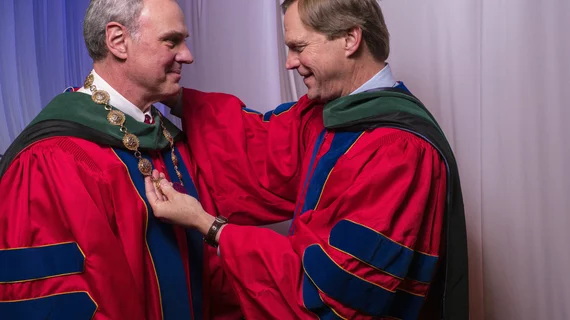Richard Kovacs takes over as ACC president
Richard Kovacs, MD, officially began his one-year stint as the president of the American College of Cardiology on March 18. The occasion was marked during a convocation ceremony on the final day of the ACC’s scientific sessions in New Orleans.
Kovacs, who served as vice president of the College during 2018-19, takes over for outgoing president C. Michael Valentine, MD, who recently shared the ACC’s advocacy goals for 2019 with Cardiovascular Business.
“It’s been of utmost importance to me to dedicate my time to the mission of the College and its work to propel the field of cardiology forward,” Kovacs, who has been a member of the ACC for more than 30 years, said in a press release. “I am honored to serve as president and spend the next year leading the ACC in realizing its vision and strategic goals.”
A professor of cardiology at Indiana University School of Medicine, Kovacs has held multiple leadership positions within the ACC. He’s spent time on the Science and Quality Committee, the NCDR Management Board and was the chair of the Board of Governors.
Kovacs’ primary research interests including measuring and improving quality, drug safety and sports cardiology, according to the release. He also oversees the cardiovascular evaluations of aspiring NFL players at the league’s scouting combine each year.
Athena Poppas, MD, took over as ACC vice president for 2019-2020, Akshay Khandelwal, MD, will serve as chair of the Board of Governors and Howard T. Walpole Jr., MD, will be treasurer.

